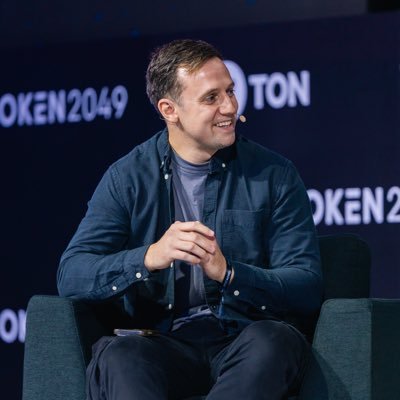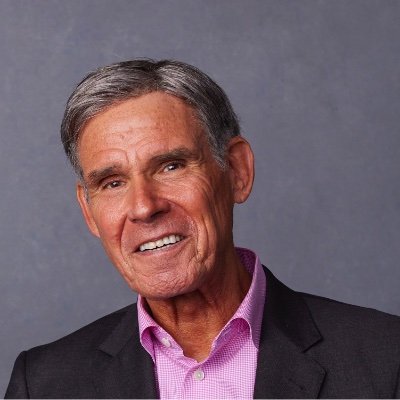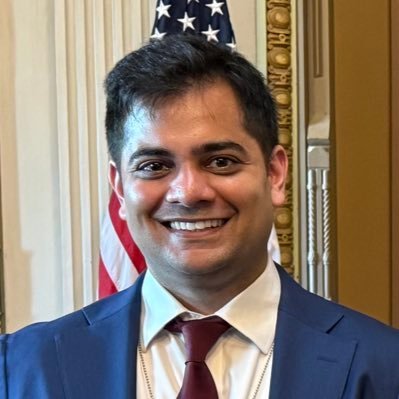
Bob Dewey
@macroleverageTP
"How fu*ked are we?" Host of Exploring Prosperity Substack and YouTube Channel- Experts on problems and solutions.
قد يعجبك
Here's a proof of the obvious: Guess what happens when money gets disconnected from gold? @LynAldenContact explained beautifully how in WWI governments had to break from gold to finance the war. Then pressures built beyond that and the last vestiges of connectivity to gold…

AI is becoming the scapegoat for inequality that started with policy, not code. The real risk isn’t automation—it’s misdirection.
The K-chart isn’t just economics—it’s emotion. Half the country feels progress; half feels left behind. That divide is turning into legislation.
“Affordability” has become the new political rallying cry—code for the K-shaped economy voters feel but can’t measure. The story is emotional, not statistical.
Politics runs on perception, not regression coefficients. When prosperity looks like an index and insecurity looks like your rent, causality doesn’t matter.
A world with fewer payroll jobs isn’t automatically poorer. It could be freer—if people share in the new leverage AI creates.
The danger isn’t automation—it’s concentration. When only model owners benefit, progress turns into rent-seeking.
Employment might shrink by payroll count even as living standards rise. That’s not collapse—it’s decentralization, as AI tools let more people earn independently.
The right question isn’t “Will AI take jobs?” It’s “Will it outcompete organizations at coordinating human effort?” That’s when payrolls shrink—but prosperity can rise. AI isn’t replacing people—it’s replacing hierarchy.
Every technology wave begins with job fear. Looms, tractors, spreadsheets—each “replaced” people before empowering them. The story repeats; the ending changes.
Gold, Bitcoin, and AI all point to the same idea: when institutions lose trust, technology rushes to rebuild it. That’s the real race shaping the next era of prosperity.
The wealth gap didn’t start with tax cuts. It started when Nixon closed the gold window. Everything since has been a search for what replaced it.

Fiat systems reward proximity to the printer. Sound money rewards productivity. The debate isn’t gold vs. fiat—it’s discipline vs. convenience.
VERY CONERNING: 🇪🇺 The EU just banned cash payments over €10,000 and will require ID for every Bitcoin transaction starting 2027. They're criminalizing privacy.


Fear writes bad policy faster than code writes jobs. The test is whether progress can move faster than panic.
“Affordability” is code for a K-shaped reality: some see booming markets, others see shrinking options. Policy should narrow that gap without kneecapping innovation.
AI isn’t yet the cause of the K-economy. But if politics turns defensive, it becomes the accelerant. h/t @jvisserlabs

Europe’s layoff protections bought stability—but suffocated tech leadership. The U.S. can’t afford that trade-off in AI.
The political reflex is to protect yesterday’s winners. Innovation happens when we resist that instinct. Guardrails build trust. Restrictions build friction.
Every breakthrough begins as heresy. The test isn’t whether AI destroys jobs—it’s whether politics destroys innovation first.
Fifty states, fifty AI laws. The U.S. advantage has always been one national market—fragment it, and we lose the AI race we already lead. Guardrails build trust. Restrictions build friction.
United States الاتجاهات
- 1. Northern Lights 33K posts
- 2. #DWTS 49K posts
- 3. #Aurora 6,687 posts
- 4. Justin Edwards 1,952 posts
- 5. Louisville 16.7K posts
- 6. #RHOSLC 6,069 posts
- 7. Andy 59.8K posts
- 8. #OlandriaxHarpersBazaar 4,225 posts
- 9. Lowe 12.3K posts
- 10. Creighton 1,799 posts
- 11. Oweh 1,952 posts
- 12. Kentucky 24.9K posts
- 13. JT Toppin N/A
- 14. Gonzaga 2,364 posts
- 15. Elaine 40.1K posts
- 16. Celtics 12K posts
- 17. Robert 98.7K posts
- 18. Dylan 30.5K posts
- 19. #Illini 1,139 posts
- 20. Jordan Walsh N/A
Something went wrong.
Something went wrong.




































































































